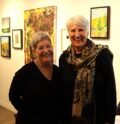Headline News
Post Traumatic Stress Disorder: the war that never ends
August 15, 2023
By Bill Kilpatrick
“Everybody goes through their dark hours,” says Canadian veteran Wayne Dehaan, “I was on the dark ledge a couple of times in my life. It’s scary and it comes out of nowhere. I remember one summer when I was out in the shop building stuff and having a good time; the radio was on. I go out onto the deck to have a beer and a smoke and just relax for a minute and the darkness just hammered in: ‘Why are you on this planet? What are you doing here? This is bullsh**; I can’t take this anymore.’ And it hit me out of nowhere. Nothing triggered me, but I was on a suicidal slope in minutes.” Dehann, who served for 12 years as an infantry soldier in the 2nd Royal Canadian Regiment, including four tours in Bosnia in the early 1990s, has been struggling with Post Traumatic Stress Disorder ever since; he was discharged in 1993.
This was not the first time that the “darkness” – as he and other veterans often refer to the sudden unpredictable and overwhelming sense of hopelessness and despair that often accompanies combat and non-combat PTSD – had almost taken him. When Dehann’s second wife had died he was losing everything, his house, his car, his trailer, and he decided that he was going to cover himself in fentanyl patches, grab a bottle of whiskey, turn the radio on and “let the world go away,” but his current partner, Emily Kavanaugh, had caught wind of his plan and stopped him before it was too late, but not every veteran is so lucky to have a support person close by when the darkness overwhelms them. “All you need is a weak moment,” said Dehaan, and the darkness will overwhelm you. In a CTV story from 2021 they cite that in the last decade 191 veterans have taken their own lives, which far surpasses the 158 that were killed serving in Afghanistan from 2001 to 2014. For Brenda Boomhouer, whose father served in the military during the Second World War and suffered from PTSD, this was unacceptable, so as the Wilberforce Royal Canadian Legion Ladies Auxiliary President, she decided to do something about it.
In 2015, Boomhouer heard about a local Afghanistan veteran who was suffering from PTSD and who was struggling to cope with the disorder. The veteran’s wife mentioned an interaction that she had recently witnessed between her husband and another veteran and how it prompted him to open up about what he was going through. Boomhouer decided that if a single interaction could be beneficial that she would try it on a larger scale and so she formed a committee to examine the idea, and soon after Vet to Vet was born. The event, which began the same year and was funded through bake sales, according to Dehaan, brings together 24 veterans – 12 women and 12 men – along with their partners and caregivers, at the Terrace Inn in Wilberforce for a weekend of camaraderie, fishing, and healing. Boomhouer hoped that the fishing weekend would provide the perfect opportunity for veterans and their partners and caregivers to connect with other veterans to share experiences and coping strategies with each other. The committee also decided to have a nurse present to help accommodate mental, physical, and health concerns. The project was a resounding success and is now in its ninth year.
For some of the veterans who have attended the yearly event held in early September, it has given them a sense of normalcy and family that was lost when they left the forces. Belinda Lake, who served from 1988 to 1992 in what was then called the Canadian Armed Forces Maritime Command, said that she never thought that she even had PTSD because she never saw combat and so suffered in silence for many years. “For a long time I knew I was broken, but I didn’t know why and eventually I was diagnosed with PTSD in 2018,” says Lake, adding that in her case, the PTSD she was experiencing was not inflicted on her by the enemy, “There were a lot of things that were done to me and my body that no human being should ever have to experience. I remember saying, ‘I was tortured. I—was—tortured.’” On top of those experiences says Lake there are the atrocities that you witness, in her case experienced as well as the “moral injuries of the things that you have been ordered to do, and you’ve got to try and reconcile with that.” For a long time Lake struggled to cope with her experiences that haunted her every night when she went to sleep, but when she attended her first Vet to Vet weekend it made a huge difference. “One of the things I said the first time I was there was ‘This is the first time in 30 years that I’ve felt normal.’ I’ve never sailed with these people, I’ve never served at the same time with some of these people and yet I was there. I was accepted,” said Lake pointing out that, “There was no judgement and It was like we worked together for thirty years.”
For both Lake and Dehaan being discharged from the forces was an extremely isolating and stigmatizing event. Dehaan said that he could have done three years in the infantry and then transferred out to a less stressful job but instead he choose to stay in the infantry for 13 years, but as soon as it was obvious that he was suffering from PTSD and could no longer do his job effectively he was cast out of the Forces, which for him was alienating and made him feel like he had lost his family. “When I got out of the forces it was like, ‘if you want anything out of us then take us to court. Now, get out of here,” said Dehaan adding that, “I felt like once the army was done with me I was just trash, because that’s how they treated us. It was a very very cold feeling and I never got to feel important again until they brought me to Vet to Vet.” He was so moved by the experience that he had there he has been volunteering ever since. Lake echoed many of the sentiments that Dehaan expressed upon her leaving the forces in 1992, pointing out that, “They break you down in basic training and build you up to be a working unit, a family. They want to make sure that you can work cohesively and then when your time was up [you were given] no supports, no nothing.”
In an attempt to make the transition to civilian life less traumatizing the Canadian Forces introduced the Departure With Dignity program in 2003. This program offered some training, but according to a 2020 article by The Centre for International and Defense Policy entitled Under(studied) Appreciation: Veteran Attitudes towards the Departure With Dignity Program, the main goal of the program is to formalize the retirement process and to give veterans “appropriate recognition” of their military service. However, this program is not without its detractor’s as the article points out, “ While many, often those with extensive service and higher rank, felt appreciated and supported during their Departure With Dignity, this was not a universal experience. Others felt left out, or even forced to participate.” The article goes on to conclude that, “until the transition process is improved, while this can be fulfilling for many, certificates mean little to those who are already releasing from the organization with a bad taste in their mouths. We owe them more.”
One of the things that made it so difficult for Lake and Dehaan to return to civilian life, besides a lack of reintegration programming by the Forces, was that no one at home understood what they were going through which made finding supports very difficult. “When you leave the military and you’re broken your family doesn’t understand,” said Lake who spoke about how she became hyper-vigilant and was on high alert all the time and as soon as she would hear the smallest sound in the night she was marching around her house with a baseball bat. Lake has made progress though, adding that she no longer sleeps with a knife under her pillow. For Dehaan, things have been much worse. He described himself as “a dumpster fire” who still has vivid night terrors and often wakes up swinging and screaming. He too still experiences hyper-vigilance and hides weapons around his house and when he drives through downtown Bancroft he is always looking for snipers on the roof tops and constantly worries about his and his partner’s safety. Dehaan knows that his behaviours are irrational but cannot seem to turn it off pointing out that, “I’m set up now for war. It’s in my head.”
This hyper-vigilance makes having any normal healthy relationship very difficult. Dehaan and Kavanaugh, despite being together for years, struggle to deal with Dehaan’s PTSD on a daily basis. “We don’t sleep in the same bed at night,” said Dehaan, “because I’ve already swung at her,” adding that, “There are sometimes where I make Emily crazy enough that she starts crying.” Kavanaugh, who disclosed that she also suffers from PTSD related to childhood experiences, said that because they both suffer from PTSD they both understand each other and can somewhat support each other, but at times she feels helpless and despite her understanding of Dehaan’s condition, she often does not know what to do to help him. “Imagine,” says Lake, “reliving your experiences every night, over and over, and so vivid and so real that you wake up swinging, you wake up kicking, you wake up screaming and it’s always the same.” Lake said that she had to turn off her emotions to cope with her experiences and only felt anger, sadness, and mistrust.
Because PTSD impacts everyone differently, veterans struggle to find strategies that work for them, which is what makes something like Vet to Vet such an effective program as they share coping strategies with one another, they connect with one another, and they realize that they are not alone. One of the volunteers that helps out with Vet to Vet, Bill Boomhouer, spoke about one veteran named Rick whom he described as a “hermit” having spent the last 40 years alone. Last year, after Rick reached out to Lake on the internet, he made the choice to come out to experience Vet to Vet and he described his experience as “coming home.” What makes Vet to Vet so impactful according to Dehaan was that he was surrounded by people who understood him, spoke his language, shared his experiences and he felt like he could finally relax and feel safe. “All of a sudden I felt like I had family around me again,” said Dehaan, which was important to him after feeling so ostracized from the Forces for years. “We take the broken [soldiers], and the ones that have nobody and feel like nobody gives a damn and we give them a family,” stated Brenda Boomhouer emotionally. Dehan agreed with Boomhouer adding, “That’s what I felt- like I was wanted again or included in a group because I never had that since I got out.”
This year, according to Boomhouer, Vet to Vet will be assisted by numerous members of the Silver Cross Mothers, who are a group of mothers that have lost a loved one who was serving in the forces. They will also be joined by eight service dogs who will be there as extra supports for those in attendance. Funding for Vet to Vet is no longer done by selling cookies, but is fully funded by multiple Royal Canadian Legion Branches through the Poppy campaign. Veterans who attend have no costs associated with attending, all their meals are free, lodging is free, they are provided with all the fishing rods, tackle, hats, t-shits, a welcome bag of goodies, and transportation is provided to those who need it. Despite being hardened veterans both Lake and Dehaan spoke about how nervous they were the first time they arrived at Vet to Vet because they didn’t know what to expect, but now that they have experienced it and the healing that it brings they look forward to it every year. “Day one at Vet to Vet everyone’s quiet and doing minor chit-chat,” says Dehaan, “but by the end of that day everyone is hugging each other, crying together, and we haven’t even gotten the boats out yet.” “Unless you see it,” says Boomhouer, “It’s hard to believe that human beings can be so good to each other. It’s beautiful to see.”
For those who would like more information about the Vet to Vet program you can contact the Bancroft Royal Canadian Legion at 613-332-3250.

















